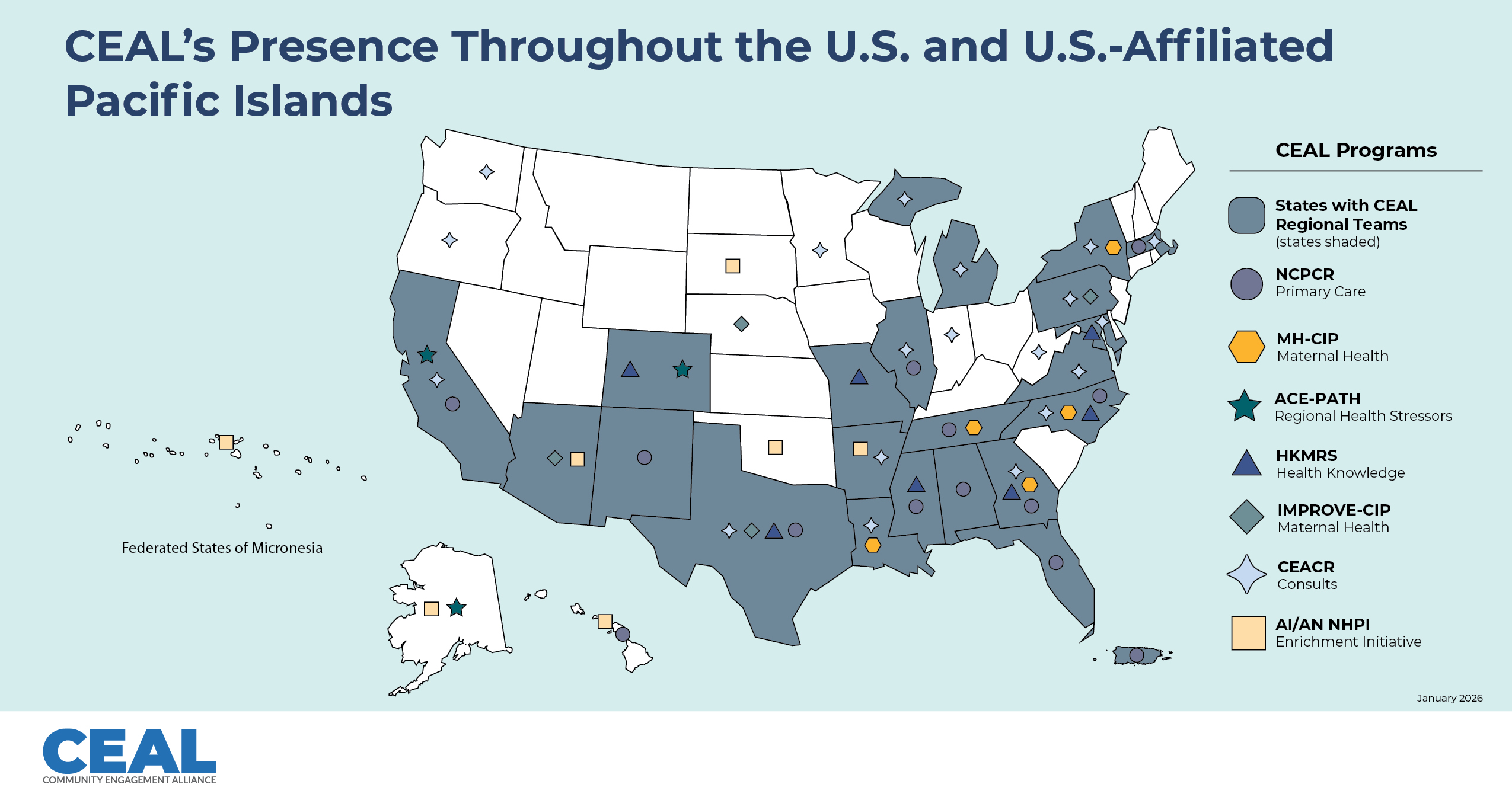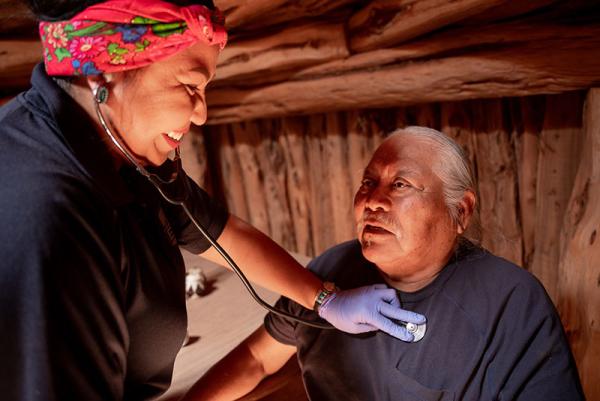 Community-engaged approaches effectively address differences in health outcomes and provide trustworthy, science-based information essential for all communities to thrive. The NIH Community Engagement Alliance (CEAL) partners with community organizations to carry out research that improves the health of communities.
Community-engaged approaches effectively address differences in health outcomes and provide trustworthy, science-based information essential for all communities to thrive. The NIH Community Engagement Alliance (CEAL) partners with community organizations to carry out research that improves the health of communities.
CEAL teams work with community members and community organizations (such as faith communities, nonprofits, community centers, schools, and businesses) to make sure that research studies consider and include the specific needs and voices of the communities of focus.
Institutes across NIH provide national research leadership and expertise to CEAL teams.
CEAL is available to support the identification of experts for national or state-level speaking engagement activities. Apply to find out more.
Find out more in the CEAL Overview Fact Sheet
What is community-engaged research?
Community-engaged research includes local people in the research process, especially those who could benefit from or be affected by the research. Research teams and communities work together as equal partners to create and carry out studies, analyze data, and share findings.
Community representatives bring their lived experiences, needs, and strengths to these studies to:
- Craft research questions and inform study details.
- Collect research data using community-informed strategies to connect with participants and get meaningful data.
- Advise on policies and decisions related to safe and effective research conduct.
- Co-create interventions or programs that fit well within the community.
- Design appropriate materials and messages tailored for specific cultures and languages.
- Analyze and report data in a way that the community can understand while acknowledging their strengths and challenges.
When deep connections and collaboration exist between researchers and communities, the research reflects a community’s strengths, beliefs, customs, and needs.
What are the benefits of community-engaged research?
Community-engaged research can:
- Address differences in health outcomes by designing research that focuses on the needs of at-risk communities. Including people with different backgrounds and experiences is important in research studies to ensure the results reflect the whole community.
- Build trust in science by including community members as equal partners in research projects from the start. This ensures that everyone clearly understands what is being studied, how the study is being handled, and what the findings mean.
- Improve health knowledge by working with trusted messengers, such as family doctors and pastors, who listen to the questions, worries, and fears that people share and provide accurate information to address these issues.
Why does research need to include people of different backgrounds and lived experiences?
A person’s culture, family history, job, and where and how they live are just some of the things that can affect how well a medicine, treatment, or other health intervention will work for them.
Treatments must be proven safe and effective for all, so research studies must include people from different backgrounds and lived experiences.
What is CEAL doing to increase representation in research studies?
To guarantee that all communities benefit from scientific advances, research must include people with various lived experiences and living conditions, as well as characteristics such as age, sex, and other demographic factors. Through its programs, CEAL supports research teams, programs, institutions, and other entities performing community-engaged research with groups who experience a greater burden of poor health outcomes.

Visit ceal.nih.gov to learn more about CEAL’s program protocol, leadership, and governance.
Last updated January 2026

Featured Resource
Wise Practices for Outreach, Messaging, and Engagement With American Indian/Alaska Native (AI/AN) Communities
This resource provides guidance for researchers who are interested in engaging with American Indian/Alaska Native (AI/AN) communities.